SUMMARY
This is AI generated summarization, which may have errors. For context, always refer to the full article.

MANILA, Philippines – At least 70 of 177 party-list groups accredited by the Commission on Elections (Comelec) for the May 2022 elections have nominees who are connected to political clans or incumbent local or national elected officials, research by the Philippine Center for Investigative Journalism (PCIJ) showed.
Among them are a former senator and many district and party-list representatives, governors, vice governors, provincial board members, mayors, vice mayors, and councilors.
Spouses, siblings, and children of politicians are running, too.
Former senator Jose “Joey” Lina Jr., once the secretary of the Department of the Interior and Local Government, is seeking a political comeback via the party-list elections. He is the first nominee of Ang Komadrona, a group seeking to represent midwives.
The father of Senator Joel Villanueva, evangelist Eduardo “Eddie” Villanueva, a deputy speaker in the House of Representatives, is again the first nominee of Citizens’ Battle Against Corruption (CIBAC). The senator and his brother-in-law Sherwin Tugna previously occupied the seat.
The wife of Senator Aquilino Pimentel III, Kathryna Yu-Pimentel, is the first nominee of PDP Cares Foundation Incorporated, a multisectoral group that enjoys ties with PDP-Laban, a political party founded by the senator’s late father.
The daughter of Senate President and vice presidential candidate Vicente Sotto III, Lala Sotto, is the second nominee of AGAP or the Agricultural Sector Alliance of the Philippines.
The older brother of Senator Ramon “Bong” Revilla Jr., Marlon Bautista, is the third nominee of 1-PACMAN, a party-list group seeking to represent several marginalized sectors.
“The party-list system has not been truly faithful to its mandate,” said Danilo Arao, a journalism professor and convenor of the election watchdog group Kontra Daya.
“We’ve seen that the ones who mostly win in the party-list race would either be part of political dynasties or be run by big business. It has become a back door for politicians to increase their number of seats,” he said.
Aside from the political clans, many party-list groups have connections with the Duterte administration, as well as the military and police, PCIJ’s research also showed.
Supreme Court reverses itself
Party-list elections were first held in 1998, following the enactment of Republic Act 7941 or the Party-list System Act, in 1995. It was initially open only to “marginalized and underrepresented sectors” such as workers, farmers, urban poor, indigenous people, youth, women, and others.
A 2001 Supreme Court ruling affirmed this initial interpretation of the party-list system law, saying that only parties and their nominees “who belong to the marginalized and underrepresented sectors” were qualified to hold seats.
In 1998, during the first party-list elections, Akbayan got the most votes, securing one seat in Congress. Bayan Muna topped the next, in 2001 and 2004, securing the maximum three seats in those elections. Both Akbayan and Bayan Muna represented various marginalized sectors and were outsiders in the traditional political arena.
In 2007, the party-list group founded by El Shaddai evangelical leader Mike Velarde, Buhay, topped the race. In 2010, it was Ako Bicol, the group founded by the family of Bicol-based businessman Elizaldy Co.
The Supreme Court reversed itself in 2013, however, citing the intent of the framers of the 1987 Constitution. It said groups or political parties only needed to advocate for common beliefs or ideologies “regardless of their economic status as citizens.”
Arao said the 2013 ruling “undermined” the party-list system, but he said the 1987 Constitution might have been deficient because “it does not really spell out that the party-list system is exclusive to the marginalized and underrepresented.”
The ruling allowed the participation of national and regional representation as well as the sectoral arms of political parties. It became an opportunity for powerful political clans and vested interests in the national and local levels to use the party-list system to extend their clout.
“Even before the Supreme Court reversed its original decision in 2001, there were already attempts on the part of national political parties, organized groups, and projects that were funded by the government directly (such as the Mamamayan Ayaw sa Droga or MAD) to penetrate the party-list race,” said political science professor Carl Marc Ramota, former chairperson of the Department of Social Sciences of the University of the Philippines-Manila.
MAD got more than 1.5 million votes in the 2001 elections, placing second to Bayan Muna. It was disqualified by the Supreme Court after they won because it didn’t belong to a marginalized sector.
“What the April 2013 decision did was give a green light to everyone to participate in the party-list race. As a result, those with resources, well-oiled machinery, and traditional bailiwicks entered the fray. And we saw this in the 2013, 2016, and 2019 elections,” Ramota said.
Switching from district to party-list elections
Many former district representatives, including those who had lost their reelection bids, have also joined the party-list elections.
Former Eastern Samar representative Marcelino Libanan is the first nominee of Pagtibayin at Palaguin ang Pangkabuhayang Pilipino (4Ps). A strong supporter of the Marcos-Duterte “UniTeam” ticket, Libanan was immigration commissioner under President Gloria Macapagal Arroyo.
Anthony Rolando Golez Jr., a former Bacolod City representative, is the first nominee of Malasakit at Bayanihan Foundation Inc. (Malasakit@Bayanihan). He was the deputy presidential spokesperson for President Arroyo from 2007 to 2009.
Malasakit@Bayanihan is closely tied to Senator Christopher Lawrence “Bong” Go. Its third nominee, Sittie Fharmina Balt, is the chairperson of Friends of Bong Go (FOBG), while fifth nominee Kerwin Pagaran was the fourth nominee of Duterte Youth party-list group in 2019.
Former Oriental Mindoro representative Rolileo Ignacio, who served in Congress in the 1980s, is the first nominee of Ang Senior Citizen.
Some former party-list representatives are now espousing different advocacies.
Former AGRI representative Orestes Salon is now the second nominee of Acts-OFW, which seeks to represent overseas workers.
Former 1Pacman representative Nicolas Enciso VII is now the first nominee of Bicol Saro, a regional party-list group.
The party-list elections have also allowed husbands and wives to both have seats in the House.
The first nominee of An Waray, Florencio Noel, is the husband of Malabon Representative Josephine Noel. Noel served as representative of An Waray from 2004 to 2013 before his sister Victoria Noel took over for two terms, from 2013 to 2019.
The wife of Manila Representative Benny Abante, Marie Paz, is the first nominee of Peace, a party-list group seeking to represent educators.
Political dynasties field candidates
Regional political clans are again fielding family members to the 2022 party-list race to gain more seats in Congress.
In northern Luzon, the daughter of Ilocos Sur politician Luis “Chavit” Singson, Richelle Singson, is the first nominee of Ako Ilocano Ako (AIA). The second and third nominees are former Candon City Mayor Allen Singson, son of Chavit Singson’s brother Eric Singson Sr., and Chavit’s son Christian Singson, respectively.
Former Isabela representative Napoleon Dy is the second nominee of ANAC-IP, a party-list group advocating for issues of indigenous peoples.
The wife of Batangas Governor Hermilando Mandanas, Regina, is the second nominee of AnaKalusugan.
Yedda Romualdez, wife of Leyte Representative Martin Romualdez, is again the first nominee of Tingog Sinarangan.
The Garin political clan of Iloilo is fielding a new family member as Sharon Garin is winding up her third and final term as representative of Ang Asosasyon Sang Mangunguma Nga Bisaya-Owa Manguguma Incorporated (Aambis-OWA). In her place, the group’s first nominee is Lex Colada, a brother-in-law of Sharon who is married to Guimbal Mayor Jennifer Garin-Colada. Aambis-OWA registered as representative of Visayan farmers.
In Mindanao, the daughter of Sulu Governor Abdusakur Tan is the first nominee of Kusug Tausug.
Banking on Palace connections
A number of civilian and military officials who worked under the Duterte administration are running in the party-list elections.
Among the most prominent is former Presidential Communications Operations Office assistant secretary and ardent Duterte supporter Esther Margaux “Mocha” Uson, who is the first nominee of Mothers for Change (Mocha) party-list group. Uson’s mother, Estrellita Uson, is the fourth nominee. (READ: MOCHA party-list retained on the ballot, hurdles Comelec accreditation bid)
Duterte’s former tourism secretary Wanda Corazon Tulfo-Teo is the first nominee of a newly accredited party-list group, Turismo Isulong Mo (Turismo). The nominees include her colleagues from the Department of Tourism (DOT): second nominee Marco Bautista was tourism undersecretary for farm, faith, ecotourism, and convergence, while fifth nominee Ma. Ana Nuguid was DOT Caraga director. Bautista served as municipal mayor of San Juan, Abra, from 2007 to 2016.
Teo was forced to resign from the DOT in 2018 after it was revealed that she had favored her brothers’ company in an advertising contract worth P60 million.
Another ardent Duterte supporter, controversial retired colonel Cezar Mancao II, is the first nominee of Kilusang Maypagasa (Maypagasa) party-list group. In 2020, President Duterte appointed Mancao as head of the Department of Information and Communication Technology’s cybercrime center.
Lawyer Reynold Munsayac, another known Duterte supporter, is the first nominee of Act As One Philippines Party-list, which seeks to represent frontline health workers. In November 2021, he filed the certificate of candidacy of his San Beda Law School classmate and Davao City Mayor Sara Duterte before the Comelec to substitute for erstwhile Lakas CMD vice-presidential candidate Lyle Uy.
Munsayac is former acting chair of the Presidential Commission on Good Government (PCGG), the government agency tasked to go after the Marcoses’ “ill-gotten wealth.” Sara Duterte is the running mate of presidential aspirant Ferdinand “Bongbong” Marcos Jr.
Advocating for the security sector agenda
A number of party-list groups are fielding former high-ranking officials from the security sector, while some groups advocate for the military’s counterinsurgency program.
Among them is retired police general Reynaldo Velasco, first commander of the Special Action Force, who is the first nominee of the Philippine National Police Retirees Association Inc. (PRAI). Retired police general Mao Aplasca, a former commander of Philippine National Police Region 4A and Aviation Security Group, is the first nominee of Avid Builders of Active Nation’s Citizenry Towards Empowered Philippines (Abante Pilipinas).
Ako Bisdak-Bisayang Dako Inc. (Ako Bisdak) has retired rear admiral Ernesto Enriquez as its first nominee and former National Bureau of Investigation (NBI) director and incumbent San Miguel, Bohol, Mayor Virgilio Mendez as its second nominee.
Nominees of the Public Safety Alliance for Transformation and Rule of Law, Incorporated (Patrol), meanwhile, are mostly officials and members of the Philippine National Police Academy Alumni Association.
Rebolusyonaryong Alyansang Makabansa will field its own party-list group in this year’s elections. RAM, originally a group of disgruntled junior military officials that participated in the 1986 EDSA uprising, first ran in 2016, with the late Danilo Lim, a retired general, as its first nominee. Similarly, Magdalo Party-list is in the race, with former navy intelligence officer Manuel Cabochan as its first nominee and 2003 Oakwood mutineers Ian Luis Badecao and Audie Tocloy as its third and fourth nominees, respectively.
At least two party-list groups have direct connections with the National Task Force to End Local Communist Armed Conflict (NTF-ELCAC): Abante Sambayanan (Sambayanan) and Ipeace Epanaw party-list groups.
Abante Sambayanan’s first nominee is Jeffrey Celiz, NTF-ELCAC’s star witness who linked Makabayan bloc legislators to the communist insurgency. Its second nominee Winefredo Dolbizo Jr. is also an NTF-ELCAC witness against the Makabayan bloc during the Senate hearings on red-tagging. Third nominee Arthur Tariman is convenor of the military-sponsored Victims of Injustice, Criminality, and Terrorism in Mindanao.
Ipeace Epanaw has Reuben Lingating as its first nominee. Lingating is former chair of the National Commission on Indigenous People (NCIP) and head of the indigenous peace panel in 2017, while second nominee Marlon Bosantog is former director for legal affairs of the NCIP and spokesperson of NTF-ELCAC. Fourth nominee Ramcy Astroveza is a former NCIP commissioner.
Not beyond repair
Although both Arao and Ramota said the Party-List System Act has been “bastardized,” they both believed the system could still be reformed by Congress, the Supreme Court, or the Comelec.
“We do not believe the system should be abolished. No matter how bastardized the system may be, there are still certain limited opportunities provided to the marginalized, to have their voices heard in Congress through certain party-list groups that may, or that are likely, not to be controlled by political dynasties,” Arao said.
Ramota said proposed bills in Congress could address the gaps and inconsistencies in the party-list law. But it’s also important to have effective legislation against political dynasties as mandated by the 1987 Constitution, he added.
“It’s not beyond repair. I’d like to believe, [because] this is a legislation, that it can be remedied through reforms.” – Philippine Center for Investigative Journalism/Rappler.com
Illustration by Joseph Luigi Almuena
This piece is republished with permission from the Philippine Center for Investigative Journalism.
Add a comment
How does this make you feel?



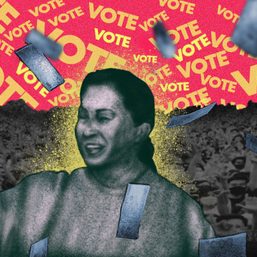
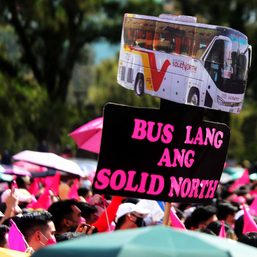
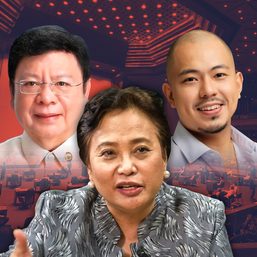




![[New School] Tama na kayo](https://www.rappler.com/tachyon/2024/02/new-school-tama-na-kayo-feb-6-2024.jpg?resize=257%2C257&crop=290px%2C0px%2C720px%2C720px)
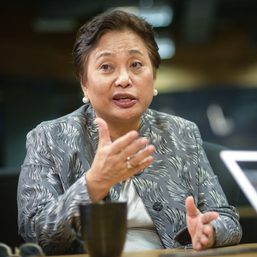
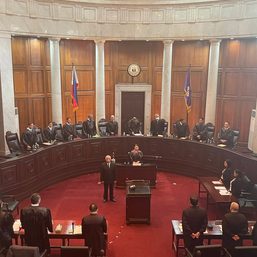
![[OPINION] Fiscal firestorm and the confident crusaders for transparency](https://www.rappler.com/tachyon/2023/10/fiscal-firestorm-confident-crusaers-transparency-october-3-2023.jpg?resize=257%2C257&crop_strategy=attention)
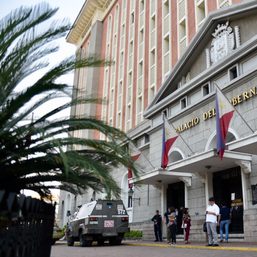
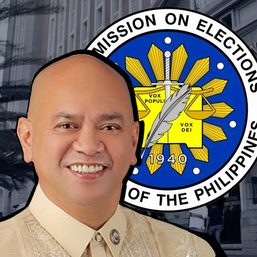
There are no comments yet. Add your comment to start the conversation.